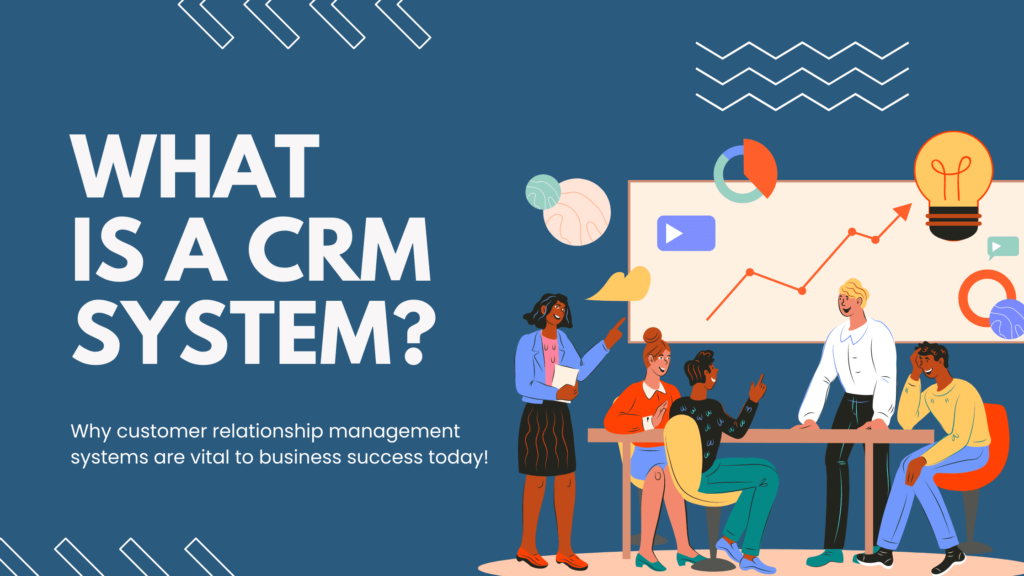
In today’s competitive business world, organizations are constantly searching for ways to improve customer engagement and boost profitability. One of the most effective tools that has emerged is Analytical Customer Relationship Management (CRM) software. This software provides valuable insights into customer behavior, allowing businesses to make data-driven decisions that improve customer satisfaction and enhance business operations. But what exactly are the benefits of using analytical CRM software? Let’s dive into the key advantages.
Outline of the Article
- Introduction to Analytical CRM Software
- Overview of CRM systems
- Difference between operational and analytical CRM
- What Is Analytical CRM?
- Defining analytical CRM
- How it works
- Benefit 1: Enhanced Customer Insights
- Understanding customer behavior
- Segmentation and targeting
- Benefit 2: Improved Marketing Campaigns
- Data-driven marketing strategies
- Personalization in campaigns
- Benefit 3: Better Sales Forecasting
- Predicting sales trends
- Using historical data for accurate forecasting
- Benefit 4: Increased Customer Retention
- Analyzing customer satisfaction
- Proactive strategies to retain customers
- Benefit 5: Optimized Customer Lifetime Value (CLV)
- Measuring customer profitability
- Maximizing CLV with strategic approaches
- Benefit 6: Efficient Resource Allocation
- Focusing resources on high-value customers
- Streamlining internal processes
- Benefit 7: Boosted Cross-Selling and Upselling Opportunities
- Identifying additional sales opportunities
- Cross-selling with customer data
- Benefit 8: Enhanced Decision-Making Capabilities
- Real-time data for decision making
- Data visualization tools
- Benefit 9: Improved Customer Service
- Using data to resolve issues faster
- Anticipating customer needs
- Benefit 10: Competitive Advantage
- Staying ahead of competitors with advanced analytics
- Creating unique customer experiences
- Challenges of Implementing Analytical CRM
- Data privacy concerns
- Integration with existing systems
- How To Choose the Right Analytical CRM Software
- Key features to look for
- Cost considerations
- Conclusion
- Recap of benefits
- Final thoughts on analytical CRM
Introduction to Analytical CRM Software
Customer Relationship Management (CRM) software is an essential tool for businesses that want to manage customer interactions, improve customer satisfaction, and boost sales. However, there are different types of CRM systems available, each serving distinct functions. Operational CRM focuses on automating customer-facing processes, such as sales, marketing, and customer service. On the other hand, Analytical CRM helps businesses analyze customer data and provides insights that guide strategic decisions.
But why is analytical CRM software becoming so popular? The simple answer: it helps companies understand their customers better and use this knowledge to optimize various business functions.
What Is Analytical CRM?
Analytical CRM software is a system that gathers customer data from multiple channels—such as email, social media, and purchase histories—and then analyzes this data to provide actionable insights. These insights can be used for everything from improving marketing campaigns to forecasting sales trends and identifying which customers are most likely to leave.
This type of CRM leverages advanced analytics and algorithms, including data mining, predictive modeling, and machine learning, to provide businesses with a clear picture of customer behavior. With this information, companies can make informed decisions that drive growth and improve customer retention.
Benefit 1: Enhanced Customer Insights
One of the most significant benefits of using analytical CRM software is the ability to gain enhanced customer insights. This tool gives businesses a deeper understanding of their customers by analyzing their behavior, preferences, and purchase patterns.
For example, an e-commerce company can use analytical CRM to track customer browsing history, purchase frequency, and engagement with marketing emails. This information allows businesses to segment their customers based on behavior and target them with personalized offers, leading to improved customer satisfaction and loyalty.
Benefit 2: Improved Marketing Campaigns
With access to detailed customer data, businesses can create data-driven marketing strategies that are highly targeted and effective. Analytical CRM software enables companies to analyze which marketing campaigns are performing well and which ones aren’t, helping them to allocate their resources more effectively.
For instance, by understanding which customers respond best to email marketing versus social media ads, businesses can refine their strategies to increase return on investment (ROI). Additionally, personalized marketing becomes easier, leading to higher engagement rates as customers receive offers that are relevant to their needs and interests.
Benefit 3: Better Sales Forecasting
Predicting future sales trends is crucial for long-term success, and analytical CRM software provides companies with tools to forecast sales more accurately. By analyzing historical sales data and customer purchasing patterns, businesses can predict future demand and adjust their sales strategies accordingly.
For example, a retail store can analyze customer behavior during holiday seasons and use this data to forecast demand for specific products. This allows them to stock inventory more efficiently and reduce the risk of overstocking or understocking.
Benefit 4: Increased Customer Retention
Customer retention is a key driver of profitability, and analytical CRM can help businesses retain more customers by identifying early signs of dissatisfaction. The software can analyze customer interactions, feedback, and behavior to determine which customers are at risk of leaving.
Once at-risk customers are identified, companies can implement proactive strategies—such as offering discounts or personalized support—to retain them. This not only improves customer satisfaction but also reduces customer acquisition costs, as retaining existing customers is more cost-effective than acquiring new ones.
Benefit 5: Optimized Customer Lifetime Value (CLV)
Another significant advantage of analytical CRM software is its ability to calculate Customer Lifetime Value (CLV). CLV is a metric that measures the total revenue a customer is expected to generate during their relationship with the business.
By understanding CLV, businesses can focus on strategies that maximize the value of each customer. For instance, companies can identify their most profitable customers and develop campaigns that encourage repeat purchases, cross-selling, and upselling, thereby maximizing revenue potential.
Benefit 6: Efficient Resource Allocation
Analytical CRM helps businesses allocate resources more efficiently by identifying which customers are most valuable and where to focus their efforts. By segmenting customers based on profitability, businesses can prioritize high-value clients while streamlining processes for lower-value customers.
For example, a company may decide to offer personalized support to their top-tier customers while using automated responses for those with lower engagement. This allows businesses to provide a higher level of service where it matters most without overburdening their resources.
Benefit 7: Boosted Cross-Selling and Upselling Opportunities
Cross-selling and upselling are vital revenue streams for many businesses, and analytical CRM software makes these opportunities easier to identify. By analyzing customer purchase histories and preferences, the software can suggest relevant products or services that complement previous purchases.
For example, if a customer frequently buys smartphones, the system might recommend accessories like chargers or cases, boosting overall sales. This data-driven approach ensures that the recommendations are relevant and increase the likelihood of a successful cross-sell or upsell.
Benefit 8: Enhanced Decision-Making Capabilities
Making informed decisions is critical in business, and analytical CRM provides real-time data that aids in better decision-making. Whether it’s adjusting marketing tactics, refining sales strategies, or improving customer service, businesses can make decisions based on solid data rather than intuition.
Additionally, many analytical CRM systems come with data visualization tools that present complex data in easy-to-understand charts and graphs. This allows managers and executives to quickly interpret data and make strategic decisions without being overwhelmed by information.
Benefit 9: Improved Customer Service
Customer service is another area where analytical CRM excels. By analyzing past customer interactions and feedback, businesses can identify common pain points and areas for improvement. This information can be used to improve response times, anticipate customer needs, and resolve issues faster.
For instance, if a company notices that a specific issue is causing repeated complaints, they can take steps to address it proactively. This leads to higher customer satisfaction and stronger relationships between the business and its clients.
Benefit 10: Competitive Advantage
Finally, one of the most critical benefits of using analytical CRM software is the competitive advantage it provides. In a world where customer expectations are constantly evolving, having the ability to analyze and predict customer behavior gives businesses an edge over their competitors.
By leveraging data to create personalized customer experiences, businesses can differentiate themselves in a crowded market. This level of customization not only improves customer loyalty but also makes it harder for competitors to win over your clients.
Challenges of Implementing Analytical CRM
While the benefits are clear, implementing an analytical CRM system does come with some challenges. Data privacy concerns are a significant issue, as businesses must ensure they are compliant with data protection regulations, such as GDPR. Additionally, integrating analytical CRM with existing systems can be complex and costly.
How To Choose the Right Analytical CRM Software
When selecting the right analytical CRM software, businesses should consider several factors, including:
- Features: Look for tools that offer advanced analytics, predictive modeling, and integration with other platforms.
- Cost: Ensure the software fits within your budget and provides a strong ROI.
- Scalability: Choose a solution that can grow with your business.
Conclusion
In conclusion, analytical CRM software offers numerous benefits that can help businesses understand their customers better, improve marketing strategies, boost sales, and
